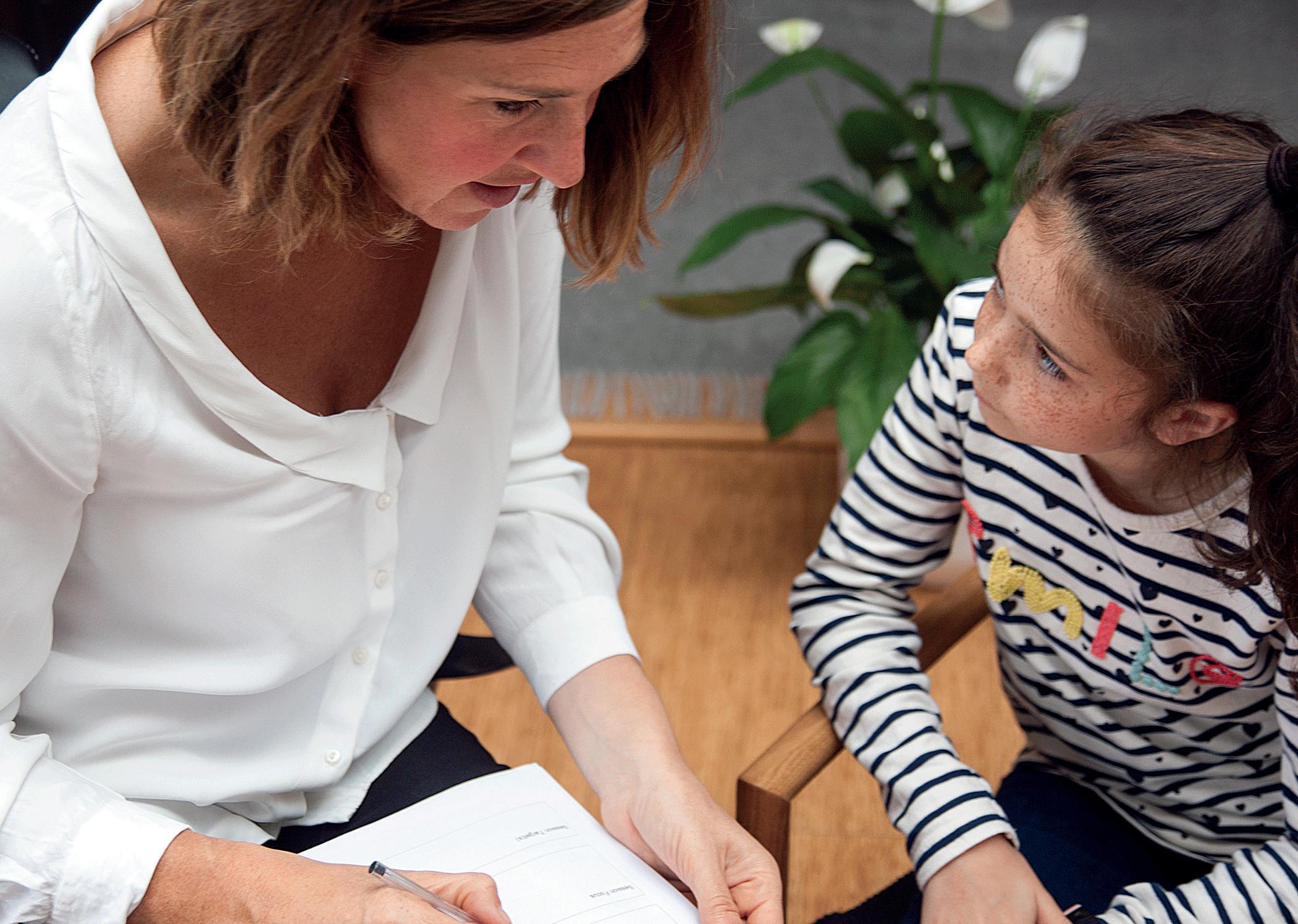
4 minute read
Mental health & well-being Support
mental health & well-being
SUPPORT FOR CHILDREN & YOUNG PEOPLE
UNRAVEL IS A CHILDREN’S EMOTIONAL & BEHAVIOURAL PSYCHOLOGY SERVICE WHICH HAS QUICKLY BEEN EMBRACED BY SCHOOLS AND PARENTS DESPERATE FOR BESPOKE INTERVENTIONS DURING CHALLENGING TIMES.
They recently celebrated their 6th birthday and over that time, have positively supported over 3500 children with a team, who are passionate and committed to improving children’s emotional well-being. Even better, every child has anonymously reported that they have helped them make changes for the better. Andrea Chatten founded Unravel, after spending over 25 years working with children’s emotional & behavioural difficulties and has since become the BBC’s go to expert when such issues arise in the news and is also author of The Blinks novels to support children’s emotional well-being. Here she tells us why a change in mental health support is needed and how you can best support your child. There has always been a service missing to translate and transform children’s behaviours quickly and to help highlight the relevant issues so each young person can develop positively. Our approach is aimed
at seeing the behaviours that every child presents, as a form of communication and every emotion that we feel is telling the truth. Punishing a child for feeling and expressing a negative emotion will never resolve the issue. Instead we need to understand, guide and look at the causes that are activating the emotions in the first place. Until we are brave enough to ask, listen and validate a child’s concerns, the volume of the emotions will only ever increase.
The same principles are subtly incorporated into The Blinks books which I developed so that our philosophy could reach more children. Entwined in each story are subtle effective strategies to help understand and move negative feelings forward so that they don’t impact too long on well-being. The series titles include Worry, Anger, Self-esteem, Sad, Shy and Love. They also tackle other social issues including bullying, bereavement, separation and divorce, school avoidance, elected mutism and running away. Alongside each novel is a Reference Manual so parents, carers and professionals can be one step ahead in nudging their child’s emotional well-being more confidently in the right direction. If you are interested visit www.theblinks.co.uk

TOP TIPS TO HELP SUPPORT YOUR CHILD’S EMOTIONAL WELL-BEING
Get in sync – emotional 1 connection is key. It is normal to disconnect with our children, life is demanding. However, when children don’t feel positively connected to us, it impacts on their well-being which is often communicated by negative behaviours

Communicate as much as 2 possible from as early as possible. Talking with each other is how we learn, and problem solve, and it starts younger than we once thought. If you want to be having meaningful conversations with your teenager’s start being open and honest when they are two or three.
Listen to what your children 3 tell you – they will teach us. It can be difficult hearing hurtful things from our children, but they are telling us what they need. Don’t hear what they say actively listen.
Avoid general praise – be 4 specific. Avoid using words like good and bad with kids. This can negatively impact on identity and well-being. Instead reward and praise the action, progress or value. They are less likely to reject this kind of praise and it fosters healthier self-esteem
Keep reflecting. The only
5difference between a positive parent and a negative parent is reflection. It certainly won’t stop us making mistakes, but we might make less mistakes and certainly not keep making the same ones!
Help children to name and
6claim emotions. Our emotions are designed to keep us alive. We must acknowledge them otherwise the brain will turn the volume up on them meaning we feel emotions much more intensely. Once we name them our brain relaxes in the hope, we will then do something about it.
Help your child challenge
7their worries and fears with evidence. Most of our thoughts are just guesses. Become emotions detectives with your kids and help them to learn that our brain isn’t always our friend.
Don’t be afraid to show 8 your variety of emotions so that children see that they are normal and that they come and go. Talk about them together and if you have not dealt with an emotion as well as you would have liked, apologise and explain.
Model the behaviours you 9 want to see in your child. If you are shouting and slamming doors because you are stressed, then they will learn to do the same.
Check in on your own 10 well-being. If you aren’t feeling great, then neither will your children and vice versa. As parents we must make sure that parenting goes one way and that is from us to them. Invest positively into your children even if you aren’t always feeling it and their behaviour will follow suit meaning you benefit too, win-win.











